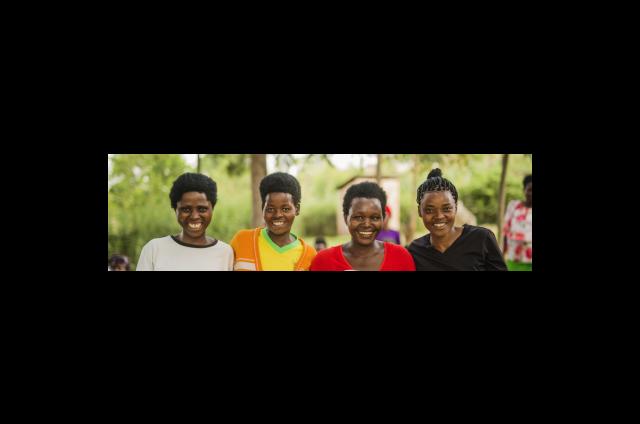Delivering The Global Goals 2021
Goal 1: No Poverty
End poverty in all its forms everywhere.
18% of women report earning at least $1.90 a day
Target 1.1 eradicate extreme poverty (people living on less than $1.25 a day)
Following the Taliban takeover in Afghanistan in August 2021 and the subsequent humanitarian and economic crisis affecting the country women’s rights have been severely impacted. The data presented here was collected from February-July 2021 before the change in government.
18% of women graduates of our programme in Afghanistan reported personal earnings of at least $1.90 a day, compared to 5% at enrolment.
The relatively low percentage changes between enrolment and graduation correlate with the impact of rising insecurity during this period.
Goal 1: No Poverty
End poverty in all its forms everywhere.
75% of women participants report saving a portion of their earnings
Target 1.5: By 2030, build the resilience of the poor and those in vulnerable situations and reduce their exposure and vulnerability to climate-related extreme events and other economic, social and environmental shocks and disasters.
The share of women reporting saving a portion of their earnings increased from 0% to 75% from enrolment to graduation.
"I have learned a lot from the Social Empowerment, Business & Vocational the stipend which I receive monthly use for daily expenses and do saving as well & now I have bought chicken to start a small poultry business."
Afghanistan, female participant May 2021
Goal 2: Zero Hunger
End hunger, achieve food security and improved nutrition and promote sustainable agriculture
96% of women graduates report no food shortage in the last 4 weeks
Target 2.1 By 2030, end hunger and ensure access by all people, in particular the poor and people in vulnerable situations, including infants, to safe, nutritious and sufficient food all year round.
Food security is a key indicator of wellbeing and decreasing poverty. Food security is not just about having access to enough food but also nutritious food. Nutrition is a key part of our training, supporting women and their family’s health and well-being.
Upon graduating from our year-long programme, 96% of women reported having sufficient food in the house in the last four weeks compared to 82% at enrolment.
Goal 3: Good Health and Wellbeing
Ensure healthy lives and promote well-being for all, at all ages.
68% of women participants report practising family planning
Target 3.7 By 2030, ensure access to sexual and reproductive health-care services, including family planning, information and education.
68% of women on our programme in Afghanistan reported sometimes or frequently practising family planning at graduation compared to 34% at enrolment.
Goal 4: Quality Education
Ensure inclusive and equitable quality education and promote lifelong learning opportunities for all.
34% of school-aged girls (5-17 years) in school
TARGET 4.1: By 2030, ensure that all girls and boys complete free, equitable and quality primary and secondary education leading to relevant and effective learning outcomes.
Women graduates of our programme in Afghanistan reported that 34% of girls were in school compared to 32% at enrolment.
Goal 5: Gender Equality
Achieve gender equality and empower all women and girls.
85.71% INCREASE IN PERCEIVED SELF-EFFICACY OF WOMEN PARTICIPANTS
TARGET 5.1: End all forms of discrimination against all women and girls everywhere.
The perceived self-efficacy of the women on our programme in Afghanistan has increased on graduation, from 0.49 on average to 0.91 on a scale of 0-1.
Goal 5: Gender Equality
Achieve gender equality and empower all women and girls
97% of women report being involved in decisions about having more children
TARGET 5.6: By 2030, Ensure universal access to sexual and reproductive health and reproductive rights as agreed in accordance with the Programme of Action of the International Conference on Population and Development and the Beijing Platform for Action
In the conservative communities where we work, women are denied influence over decision-making – including over their own bodies. Our data highlights an important
shift in women’s voices being heard in decision-making which should also lead to positive changes in wellbeing.
Overall, in Afghanistan, we are seeing about 97% of women reporting involvement across several household decisions. For this specific indicator, we have found that
women do not necessarily appreciate the relevance at baseline. By endline, having been through training, women realise that this is applicable which changes
the denominator and explains the decrease here.
Goal 8: Decent Work and Economic Growth
Promote inclusive and sustainable economic growth, employment and decent work for all
22% of women report employment
TARGET 8.3 Promote development- oriented policies that support productive activities, decent job creation, entrepreneurship, creativity and innovation, and encourage the formalisation and growth of micro-, small and medium-sized enterprises.
On graduation of our programme, 22% of women reported employment across all occupation levels compared to 7% at enrolment. In light of the economic impact of COVID-19 and the associated lockdown measures that continued throughout 2021, this percentage increase is still impressive considering the challenges women faced in gaining and maintaining employment during this time.
Goal 16: Promote just, peaceful and inclusive societies
Promote peaceful and inclusive societies for sustainable development, provide access to justice or all and build effective, accountable and inclusive institutions at all levels.
100% of women have spoken publicly against abuse of women
16.1 By 2030, significantly reduce all forms of violence and related death rates everywhere.
100% of graduates of our programme in Afghanistan reported publicly speaking out against abuse of women compared to 18% at enrolment.
Goal 16: Peace, Justice and Strong Institutions
Promote peaceful and inclusive societies for sustainable development, provide access to justice or all and build effective, accountable and inclusive institutions at all levels.
63% of women discussed community issues with other women in community
16.7 Ensure responsive, inclusive, participatory and representative decision-making at all levels.
The percentage of women who discussed issues with other women in their community increased by 250% from 18% at enrolment with 63% at graduation.


